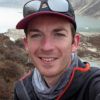
Scott Watson
- Course: PhD in Geography
- PhD title: The evolution of supraglacial ponds and ice cliffs on Himalayan debris-covered glaciers
- Year of graduation: 2017
- Nationality: British
- Job title: Associate Research Scientist
- Company: University of Arizona
Funding: University Research Scholarship
Supervisors: Dr Duncan Quincey, Dr Jonathan Carrivick, Dr Mark Smith
External supervisor: Dr Ann Rowan (University of Manchester)
Why did you decide to study for a PhD, and why Leeds?
My undergraduate and masters degree at Leeds helped developed my interests and skills in physical geography and research in the Himalaya, and gave me the opportunity to discuss potential PhD projects with my current supervisors. I’ve always had an interest in mountain environments and I knew Himalayan glaciology would be an exciting research field, to which I could apply the GIS and remote sensing skills I’d learnt at Leeds. Plus I couldn’t think of a better place to carry out fieldwork, aside from perhaps retraining as a tropical marine biologist. Leeds was a perfect choice because I was familiar with the department and researchers, and it has easy access to the countryside to pursue my other hobbies of running, walking, and climbing.
What is your experience of PhD study in the School and what skills have you learnt?
My experience so far has been 100 % positive (touch wood). Time flies, but I have clear goals and regular meetings with my supervisors to discuss ideas. The department is very close knit and I regularly meet with other PhD students to take a break from research. The River Basins Cluster was also very welcoming and I took the opportunity early on to present my research ideas, which helped develop new connections in the department.
Since starting my PhD I’ve developed new skills using remote sensing and GIS software, learnt how to make and analyse 3D models using Structure-from-Motion, improved my paper writing, and conducted two field campaigns on the Khumbu Glacier in Nepal, the first of which involved four weeks in a tent at 5000 m altitude! I’ve also given numerous presentations within the department and attended several outreach events, including helping to present our research team’s work to over 13,000 people at the Royal Society Summer Science Exhibition in London.
What are your career aspirations?
My plan when starting the PhD was to remain in academia and that still holds true. Whilst funding is competitive, I hope that completing my PhD with publications and having the experience of several productive field campaigns and four great supervisors will help me find my next post. I also enjoy demonstrating so would love the opportunity to inspire new undergraduates as well as continuing my research.
What would you say to someone who may be considering studying a PhD in the School of Geography?
I would recommend getting to know your potential supervisors and the ins and outs of the project, including how it can be tailored to your interests and skills. Three years is a big commitment and every PhD experience is different. I knew from meeting Duncan, Jonathan, and Mark that we would get on well with shared interests in and outside of academia, which gave me confidence in the project and supervision expertise.

